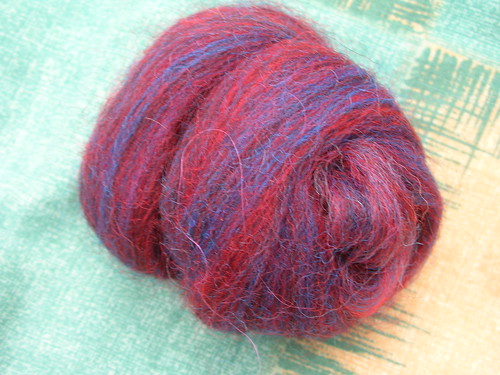
A teeny bump of Corridale, dyed blue and red and combed? carded? together to make the pretty mixture in the picture. After I finished spinning the strawberries and cream pink merino I started on the bits from the Socktopus class sampler that don't need any more prep work before spinning, and this was the first to hit the twist.
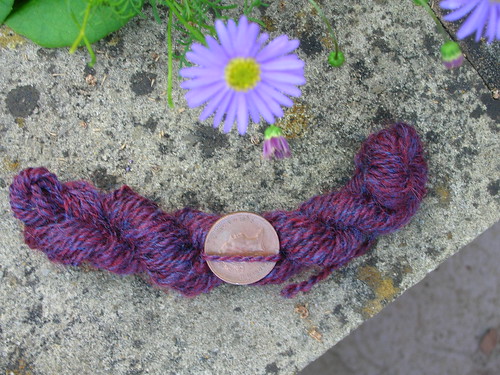
It spun easily and finely (that's a penny in the picture) and I have a tiny number of yarns of two ply at the lower end of fingering weight. It sat in the handspun basket for a while until I finished some other yarn (more on that later) and I decided that I needed a break from endless cross stitch to deadline. I've always been told that you don't really 'get' handspun until you knit with it, but I need to take the time to figure out a pattern for the merino and "My First Handspun" so they're still in the basket, but the Corridale looks like this:

Knit up over 30sts on 3.25mm needles and a gorgeous mulled wine colour that is incredible hard to photograph. The picture above is pretty accurate but that's more than can be said for many of the pictures.
This was my first swatch of the evening and I think H missed the part of my brain process that stayed silent because I was terribly keen to show it to him and wave it around and explain that it was knitting that it was only half way through the evening that he suddenly turned to me and exclaimed: "You spun this?". Penny, meet a long drop. He confessed that he thought that it was real yarn and was then terribly impressed. As he should be because it's great.
The second swatch du jour used very newly spun grey alpaca. It started life as a mini-batt:

And after some careful study of Maggie Casey's book, Start Spinning (a book I would thoroughly recommend) I tried to spin this by long draw (I think). I mean the method where the twist is between your two pinch points, rather than always to the right of both hands.
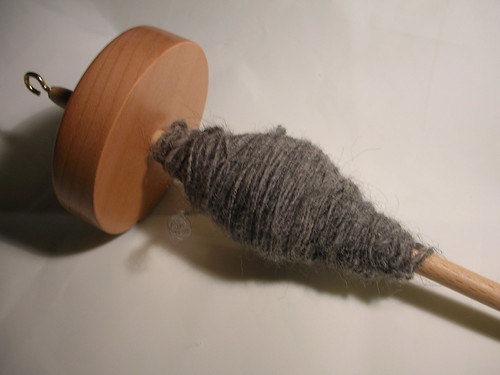
Alpaca has a very different feel to wool as well, whether combed top or batts or roving, although how much of that was the yarn and how much was the 'grease' it's hard to tell. I know this much was in there originally:

And the water was pretty cloudy when I rinsed the final yarn.
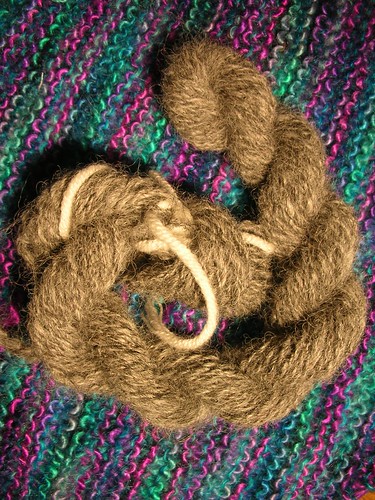
From the penny shot you can see that it is much thicker than the Corridale, on the heavy end of a DK weight.
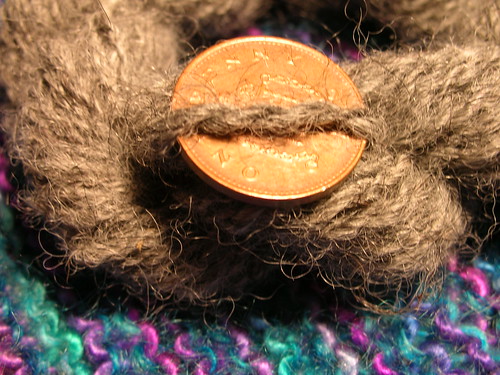
Knitted up it has a rough, crunchy texture which I rather like. This is also 30sts, this time over 4mm needles, and as before I knit until I ran out of yarn. I'm going to try to give it a dip in Eucalan over the weekend to see what happens.
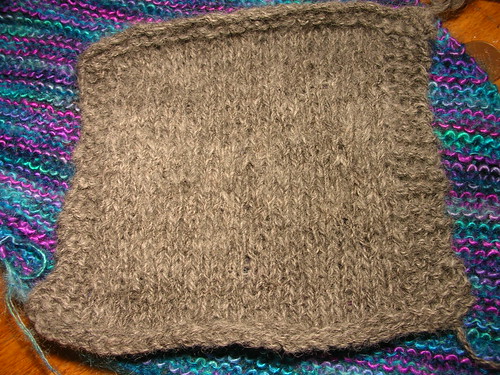
You can see by this close up the halo on the alpaca - partly the work of the alpaca and partly the work of me :)
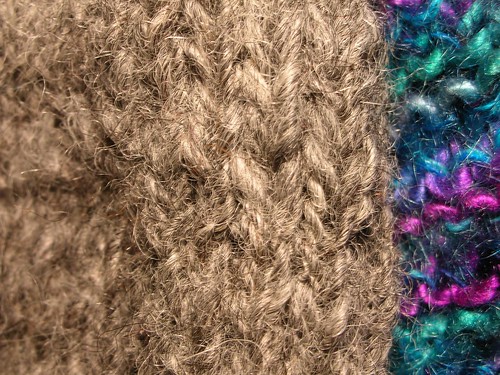
Playing compare and contrast you can see that the stitch definition is much sharper in the Corridale than in the Alpaca, but not half so fuzzy, and despite the 'crunchy' feeling in the alpaca it is the softer option.
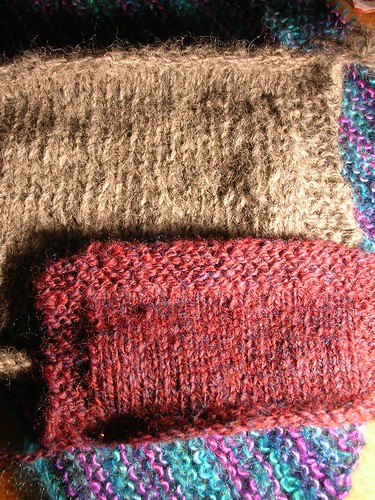
I'm sure many of you are wondering why I, who is known for a little swatch avoidance, could take so much trouble to knit what are in essence, unusable swatches but fear not, I have a plan. It's called re designation. (Governments are very good at that sort of thing).
The Corridale, after much experimentation, has discovered a new role here:
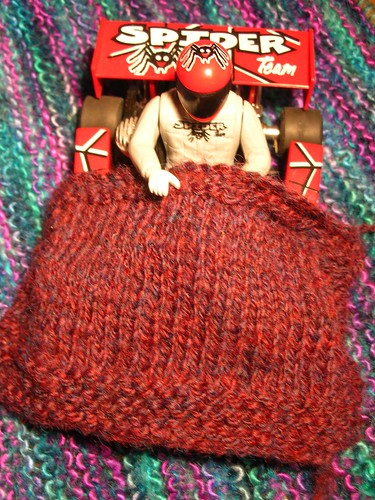
Well you wouldn't want the tyres getting cold before an F1 race would you? Even if it is only around the Scalextric!
We tried the Alpaca against a number of small toy cars before identifying an ideal knitwear/victim combination
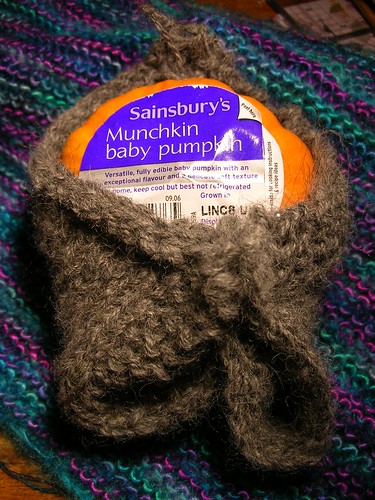
A Pumpkin Cozy!

I tell people that it takes no time at all to be spinning good knitting yarn and they don't believe me. I shall now hold you up as one of the examples. I also say that you don't really get it until you knit it - you get it now.
ReplyDeleteHehe, I laughed so much at your pumkin cosy!
ReplyDeleteI might have more of that corriedale somewhere if you want to make enough 'real yarn' for a small project. I'll have a look.
x
Its really interesting the way the colours have changed.
ReplyDelete